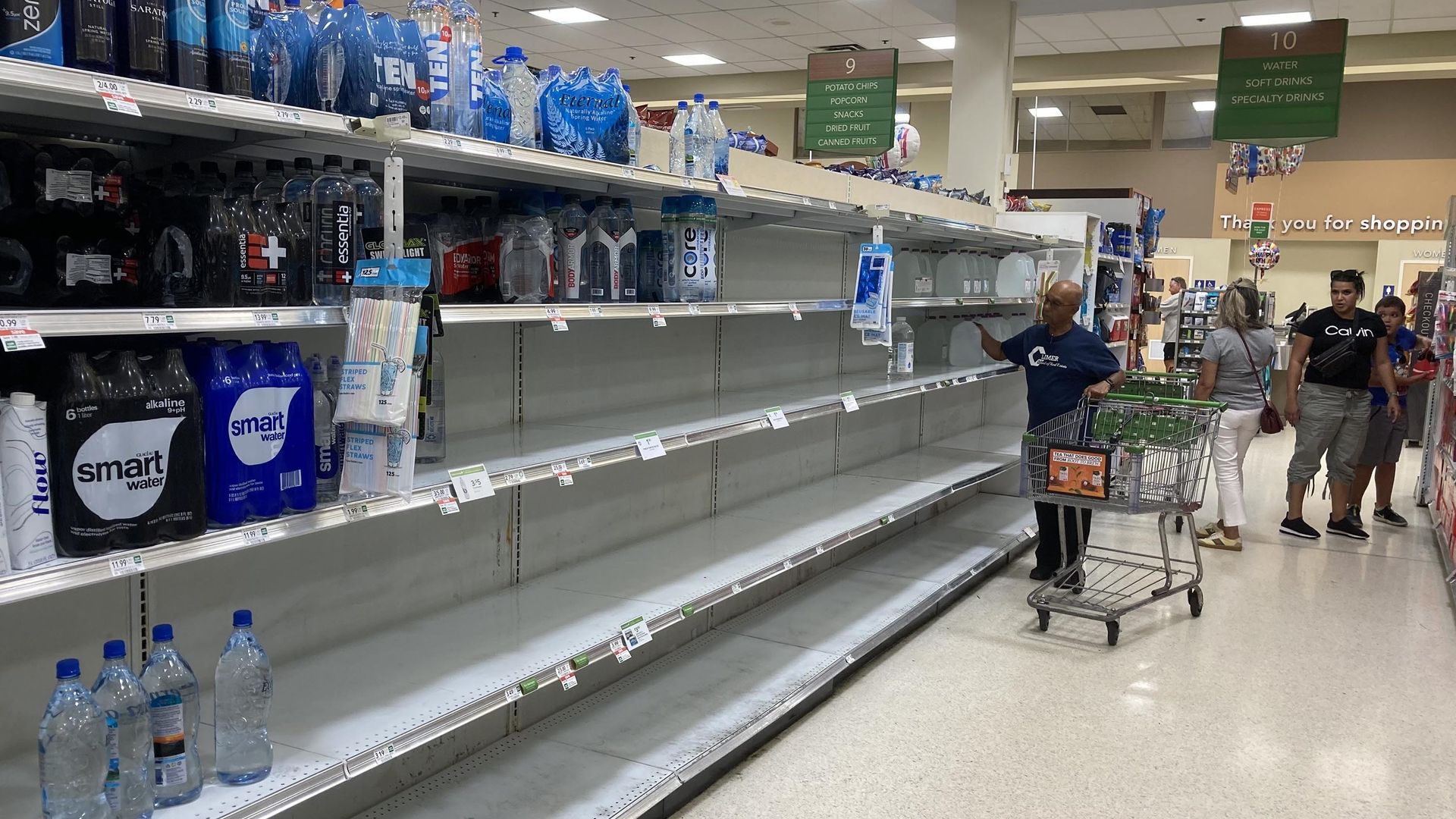Newcomer's guide to hurricane prep: What to consider ahead of a storm
Add Axios as your preferred source to
see more of our stories on Google.

A Publix store in Orlando was nearly sold out of water on Saturday. Photo: Cristobal Reyes/Orlando Sentinel/Tribune News Service via Getty Images
First hurricane? First in a while? Don't panic. We've got your back.
- We've covered every hurricane and tropical storm to threaten Florida in the past 17 years, from Wilma to Irma. We'll walk you through some options.
First things first: Veteran meteorologist Denis Phillips with ABC Action News reminds us that errors in storm tracking beyond three days out can be huge, so don't get caught up in those forecasts.
- With the storm slated to hit Florida mid-week, now is when you want to start paying attention to storm track trends.
Should I stay or should I go? Before you decide to ride this one out in your bathrobe with a frozen daiquiri, consider: where is your home, what's it made of, and what evacuation zone are you in?
- If you're in a mobile home or some impermanent structure, you might think hard about evacuating.
- Otherwise, plug your address into this handy map to see your evacuation zone. EZs are designated by letter and your vulnerability increases with every letter, with Zone A as the most vulnerable. (To see whether you're in a flood zone, go here: Citrus, Hernando, Hillsborough, Manatee, Pasco, Pinellas, Polk, Sarasota.)
- Listen to local authorities as the storm gets closer, and follow appropriate routes if you choose to evacuate at the last minute.
- If the storm is big enough to push a storm surge into your home, it's best to bail. Here's where you can find free government sandbags. (Warning: the lines in Tampa were very long yesterday.)
- If you stay, get prepared. At a minimum, have a seven-day supply of food and water. To be truly prepared, here's a handy checklist for a disaster supply kit.
Seek higher ground: Go stay with family or friends in a safe place for a few days. Get a motel or Airbnb in Gainesville or Lake Butler. Make arrangements in advance.
- Make sure that your car is full of fuel.
- Stay away from major bodies of water.
- Go early; traffic gets worse the closer the storm is to landfall.
- Remember: storm tracks can change quickly, so be careful not to seek shelter too early or you could put yourself in a worse situation.
Emergency shelter: Many local schools and public buildings open to the public as storms approach. Check with your municipality to see which shelters are near you.
- Emergency public shelters should always be the option of last resort.
